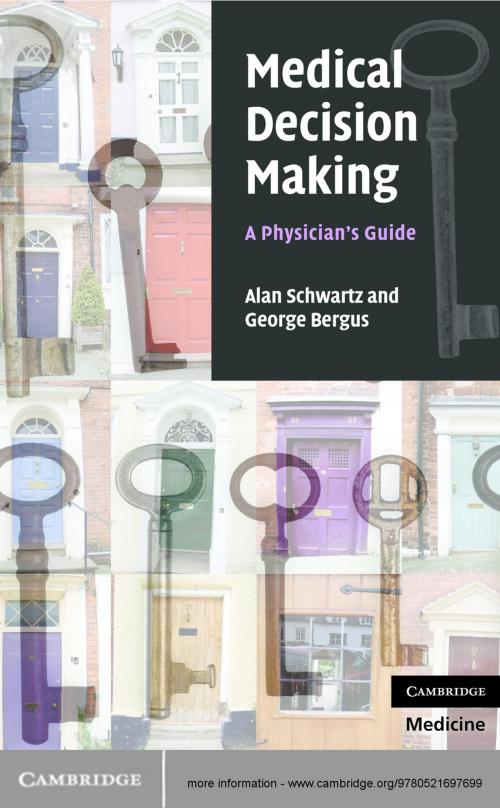Medical Decision Making
A Physician's Guide
Nonfiction, Health & Well Being, Medical, Ailments & Diseases, Infectious Diseases, Epidemiology, Reference, Public Health| Author: | Alan Schwartz, George Bergus | ISBN: | 9781139809603 |
| Publisher: | Cambridge University Press | Publication: | May 29, 2008 |
| Imprint: | Cambridge University Press | Language: | English |
| Author: | Alan Schwartz, George Bergus |
| ISBN: | 9781139809603 |
| Publisher: | Cambridge University Press |
| Publication: | May 29, 2008 |
| Imprint: | Cambridge University Press |
| Language: | English |
Decision making is a key activity, perhaps the most important activity, in the practice of healthcare. Although physicians acquire a great deal of knowledge and specialised skills during their training and through their practice, it is in the exercise of clinical judgement and its application to individual patients that the outstanding physician is distinguished. This has become even more relevant as patients become increasingly welcomed as partners in a shared decision making process. This book translates the research and theory from the science of decision making into clinically useful tools and principles that can be applied by clinicians in the field. It considers issues of patient goals, uncertainty, judgement, choice, development of new information, and family and social concerns in healthcare. It helps to demystify decision theory by emphasizing concepts and clinical cases over mathematics and computation.
Decision making is a key activity, perhaps the most important activity, in the practice of healthcare. Although physicians acquire a great deal of knowledge and specialised skills during their training and through their practice, it is in the exercise of clinical judgement and its application to individual patients that the outstanding physician is distinguished. This has become even more relevant as patients become increasingly welcomed as partners in a shared decision making process. This book translates the research and theory from the science of decision making into clinically useful tools and principles that can be applied by clinicians in the field. It considers issues of patient goals, uncertainty, judgement, choice, development of new information, and family and social concerns in healthcare. It helps to demystify decision theory by emphasizing concepts and clinical cases over mathematics and computation.















